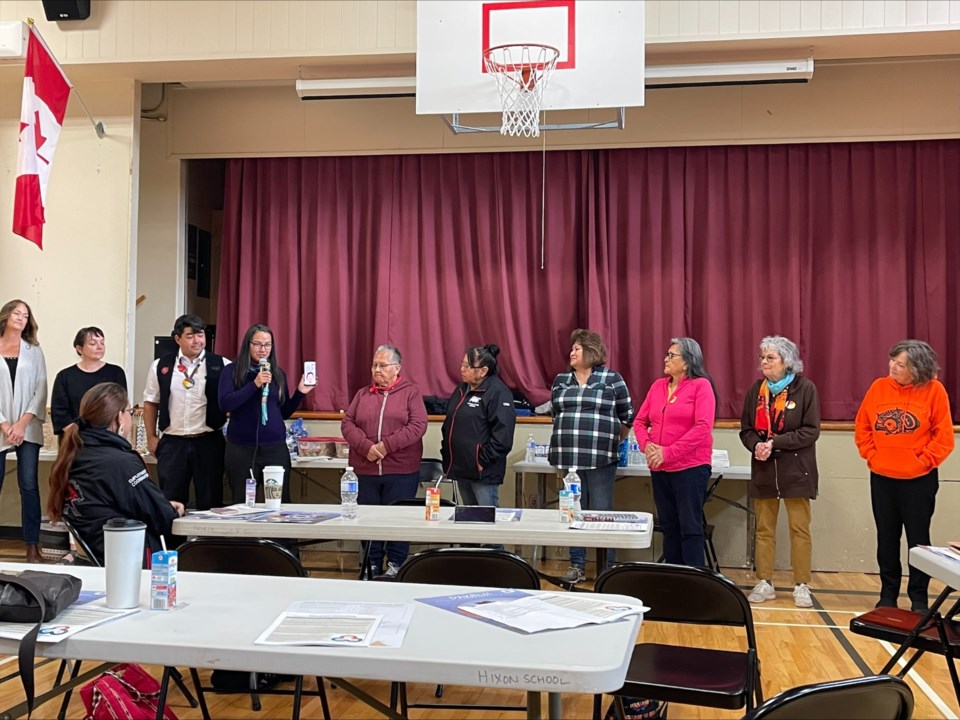Just days before National Indigenous Peoples Day, two northern B.C. school districts and area First Nations celebrated a huge milestone for Dakelh language revitalization.
A Dakelh language curriculum developed by School District 57 Prince George (SD57) and School District 28 Quesnel (SD28) and local Dakelh nations has been officially recognized by the province.
A steering commitee from SD28 and SD57 worked with Lheidli T’enneh, Lhoosk'uz Dené Nation, Lhtako Dené Nation, Nazko First Nation and Ulkatcho Nation to develop the curriculum, which spans from early learning years to grade 12.
Tuesday saw a celebration on the curriculum's approval at Hixon Elementary School with representatives from the Ministry of Education, the school districts, and the First Nations that worked on the curriculum, which has been in development since the 2019/2020 school year.
“It has been such a long process, but it's super exciting and it was very emotional day hearing from our elders — their stories of coming out of residential school and now being teachers in the schools where they can actually teach the language,” said Jennifer Pighin, vice-principal of language and culture with SD57.
“All of the people that have worked on it, it isn't just the steering committee, we also consulted with lots of community members and other educators — we are all really excited and proud to see this happening.”
This curriculum is a general framework that can be used to teach Dakelh within the public school system.
There are many Dakelh communities that are geographically distant, and the dialects may vary but the curriculum was designed to be adaptable for any dialect and for each community to infuse their own values, resources, and teaching strategies.
“It's a framework for how to teach the language, what needs to be focused on at different times. Ours is focused around the Dakelh holistic lifelong learning model and a strong emphasis on the seasonal rounds and identity and learning through protocols, land and experiential learning,” said Pighin.
“For each grade, as you go, it progresses a little bit more to more difficult sounds, and adds a lot more grammar and looks at expanding on what was done in previous years.”
Pighin said now that the curriculum has been recognized by the ministry, teachers will be able to use the curriculum if they want to teach Dakelh in their classrooms.
Previously there were no Dakelh language options available for students in B.C. and the Ministry of Education requires schools to offer a second language from grades five through eight.
“We'll be talking to principals and sharing this out. So hopefully, the message in the celebration sparks interest in teachers to consider moving over to an Indigenous language and teaching in their classrooms.”
Pighin said the next steps are to build on the resources available for teachers to teach, and eventually move the curriculum online so everyone will have the opportunity to learn.
Dakelh is spoken by the Dene tribes of the Northern, Central and Southern Interior of British Columbia.





